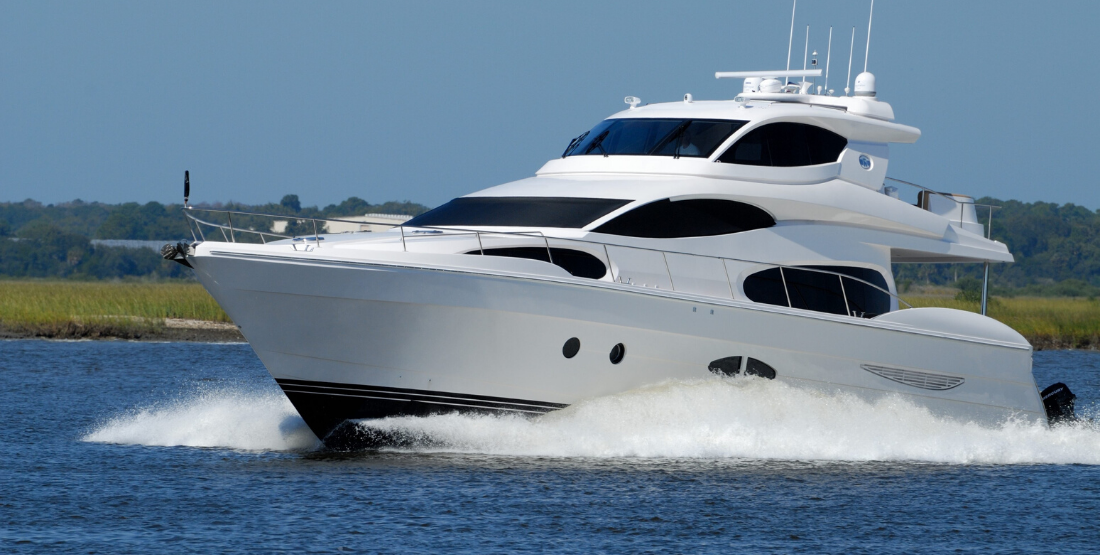Superyacht Documents and Certificates: An Overview

As many of you know, vessels and owners will need certain certificates and documents for the closing of a sale. With a few exceptions, what is needed will primarily depend on the tonnage of the vessel and whether it will be used as a commercial or recreational vessel, and in this article, we discuss considerations for the latter.
Types of Vessel
Generally speaking, there are four main categories of recreational vessels that you would deal with: (1) vessels of less than 24 metres; (2) vessels that are larger than 24 metres with a tonnage of less than 300 gross tonnes; (3) vessels that are larger than 24 metres with a tonnage higher than 300 gross tonnes but less than 400 gross tonnes; and (4) vessels with a tonnage of more than 400 gross tonnes.
Irrespective of the tonnage or length of the vessel, there are two important topics to discuss that will likely come into play during any transaction you are involved in: (1) insurance; and (2) sellers and owners’ bank accounts. The first is something brokers are very familiar with, although now with an added complication, and the second is something that comes up every now and then.
Insurance
As a broker representing a buyer, you should advise them to get an insurance quote prior to the accept/reject date - part of your responsibility as a buyer’s broker is to provide advice on insurance as buyers largely rely on their brokers for this. In the wake of recent hurricanes and other natural disasters, yacht insurance has become less than easy to secure, with many insurance agents complaining that they have a hard time placing vessels with carriers because many have dropped out of the market altogether. The carriers that still remain have become quite selective in the vessels they accept, and their decision to accept is largely based on the condition of the vessel.

Many insurance companies now require a copy of the survey report not just to confirm the value of the vessel or the information that they have been provided, but also to confirm the condition of the vessel to determine whether they will take the risk of insuring it and under what conditions. Insurance companies may deny coverage altogether or condition coverage on certain items listed in the survey report as recommendations to be completed prior to closing (or prior to the vessel being able to move after closing).
The problem here is that if your buyer receives this information after the vessel has been accepted and his deposit is now at risk, he may blame you for not advising him earlier when he could have made an informed decision. By strongly advising your buyer to obtain an insurance quote and provide a copy of the survey report to insurance companies early on in the process, it gives them as much time as possible prior to become aware of any survey issues that might exclude, limit or increase the cost of insurance coverage, allowing them to make an informed decision at the proper time.
Bank Accounts
When a broker first gets a listing, he/she should confirm that their client has a bank account and if not, make sure they open one. Owners rarely own vessels individually, especially when the boat is on the larger size, and they rarely open bank accounts for the companies that own their vessels. While it is beneficial to open a bank account from the time they first purchase the vessel, as it makes it easier to track and manage expenses for the vessel, it also helps when they are ready to sell their vessels. Most of the time, buyers, and the banks they use, demand to only fund a bank account that is in the exact name of the corporate entity that owns the vessel. This trend will only continue to become more and more the norm as due diligence requirements and banking transparency regulations become more stringent.
Certification
So, if we haven’t lost you already, and at the risk of losing you now, let’s briefly discuss some of the certificates that vessels should have if they fall under one of the categories we listed earlier.
Vessels under 24 metres. This is an easy one! These are vessels that generally require the least amount of certificates and documentations, depending on the vessel’s flag or the flag that the buyer chooses. Without getting into flag-state specifics, what you should point out to your clients here is that these vessels should all have a valid and unexpired certificate of registry, and most of the vessels that you deal with will need to have EIAPP certificates (yes, these again!).
Owners should also confirm that they have the original certificates of registry, and that it has not expired. Often, owners forget to renew their annual registry, misplace the original certificate, or forget that it is on deposit with customs, but all of this can be avoided with proper advising from the broker.

EIAPP certificates (and other related engine certificates) have become, as many of you have experienced, a cause of large confusion, cost and delay in many closings. In short, as these certificates have been the subject of multiple articles recently, all U.S. and foreign-flagged vessels that have a diesel engine with a power output of more than 130kW must have an EIAPP certificate and accompanying technical file. Failure to carry these (for each qualifying engine) can result in hefty daily fines and is likely to delay closing if they are not available. If, on the other hand, the buyer does not require them as a condition of closing, they may later come to find out that they are now subject to fines or that they may now have to pay up to $10,000 per certificate (one per engine).
Vessels less than 300 gross tonnes. In addition to the certificates mentioned above, these vessels will also require a Declaration of Anti-Fouling Systems. This requirement is not a certificate, but rather a declaration signed by the owner or the owner’s authorised agent stating that the vessel complies with the provisions of the Anti-Fouling Convention, which regulates harmful substance in anti-fouling paints. Proof of such compliance (a receipt or invoice) will also be necessary. These vessels will also need an International Tonnage Certificate, which may require a tonnage survey.
Vessels between 300 gross tonnes and 400 gross tonnes. These vessels will need to obtain a Certificate of Insurance or other Financial Security in Respect of Liability for the Removal of Wrecks. This is a certificate (or what is sometimes referred to as the ‘blue card’) that confirms that insurance or other financial security has been issued in the name of the owner and is in compliance with the provisions of the Nairobi International Convention on the Removal of Wrecks.
Larger vessels of over 400 gross tonnes. And, we got to MARPOL! Vessels of over 400 gross tonnes need all of the above and, whether commercial or private, will also require the appropriate MARPOL certificates.
****This article is not legal advice or a legal opinion and should not be considered as such. Other certificates may be applicable to your yacht. Please reach out to your yacht lawyer to confirm the requirements for your specific vessel. ****


Post your comment
You cannot post comments until you have logged in.
Login to post a commentComments
No one has commented on this page yet.
RSS feed for comments on this page | RSS feed for all comments